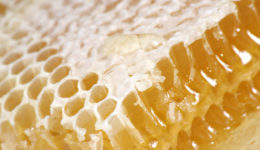Do users and beekeepers value honey and bee products?
Yes, beekeepers and users definitely value honey and other bee products. Beekeepers are people who practice beekeeping, which involves caring for bees and harvesting honey and other bee products such as wax, pollen, royal jelly and propolis.
Honey is the most famous and popular bee product, known for its sweet taste and many culinary uses. Honey can be used as a natural sweetener in various recipes, added to drinks, yogurt, fruit and other dishes. In addition, honey is used in traditional medicine for its potential healing properties.
In addition to honey, other bee products are also valued and used in various ways:
- Wax: Beeswax is widely used to make candles, cosmetic products such as lip balms and creams, and to preserve food, such as in cheese making.
- Pollen: Pollen can be consumed as a dietary supplement, as it is rich in proteins, vitamins and minerals. Some people also use it in natural medicine.
- Royal Jelly: Royal jelly is a secretion secreted by young bees and is known for its potential medicinal properties and is used as a nutritional supplement.
- Propolis: Propolis is a resinous substance that bees collect from trees and use to protect the hive. It is used in natural medicine for its anti-inflammatory and antimicrobial properties.
Beekeepers obtain these bee products through careful and sustainable handling of bees and respect for nature. Users, however, value these crops for their taste and potential health benefits.
The price of bee products, such as honey and other bee products, can vary depending on a variety of factors, including location, product quality, grower, season, and so on. Most people who appreciate bee products understand that the price is a reflection of the effort involved, the cost of production and the quality of the products.
Beekeepers and producers of bee products usually invest a lot of work and care in raising and caring for bees, obtaining crops, and processing and packaging them. They also consider natural factors such as weather conditions that can affect the yield of bee products. Therefore, the prices of bee products may vary depending on local conditions and the efforts of individual beekeepers.
Most consumers are willing to pay a premium for high-quality bee products that are ethically and sustainably produced and may offer additional health benefits. In addition, they are aware of the importance of bees for pollinating plants and preserving the ecosystem, so they support beekeepers and the purchase of bee products.
In some cases, the price of bee products can also be reflected in additional factors, such as organic certification or special production methods that require more effort. Nevertheless, honey and other bee products are popular foods and ingredients in many cuisines around the world, so there is a steady demand for these products.
